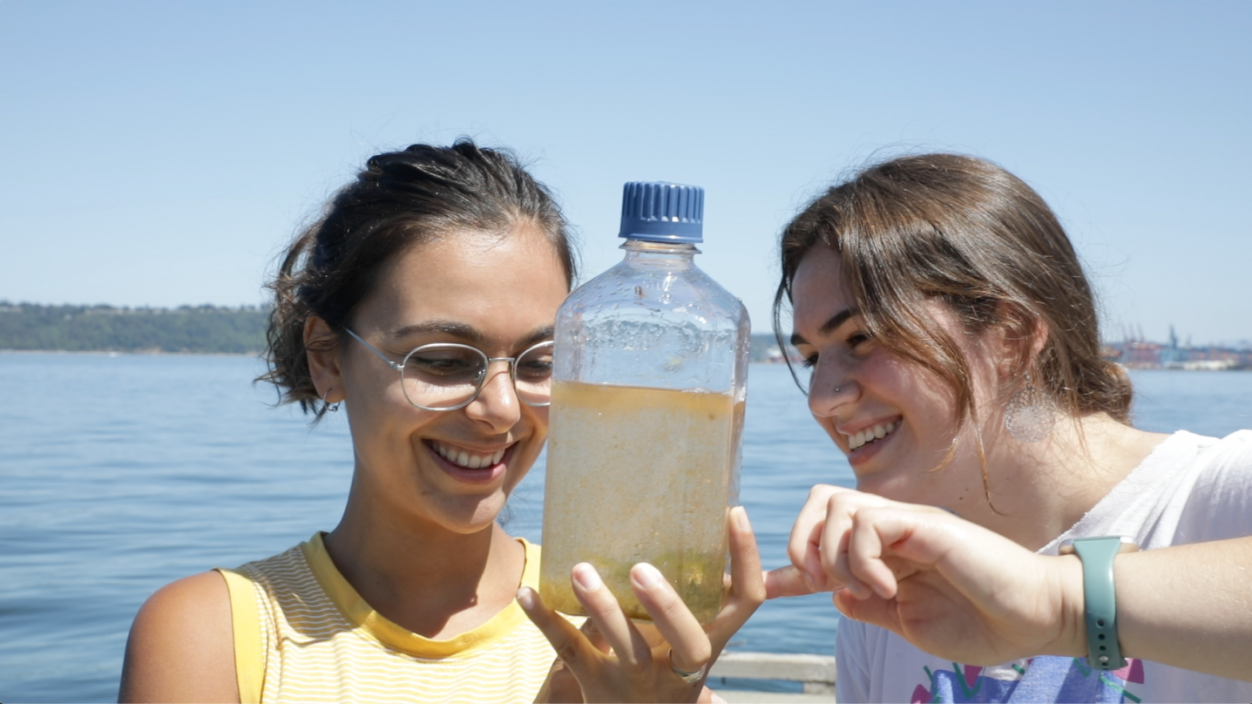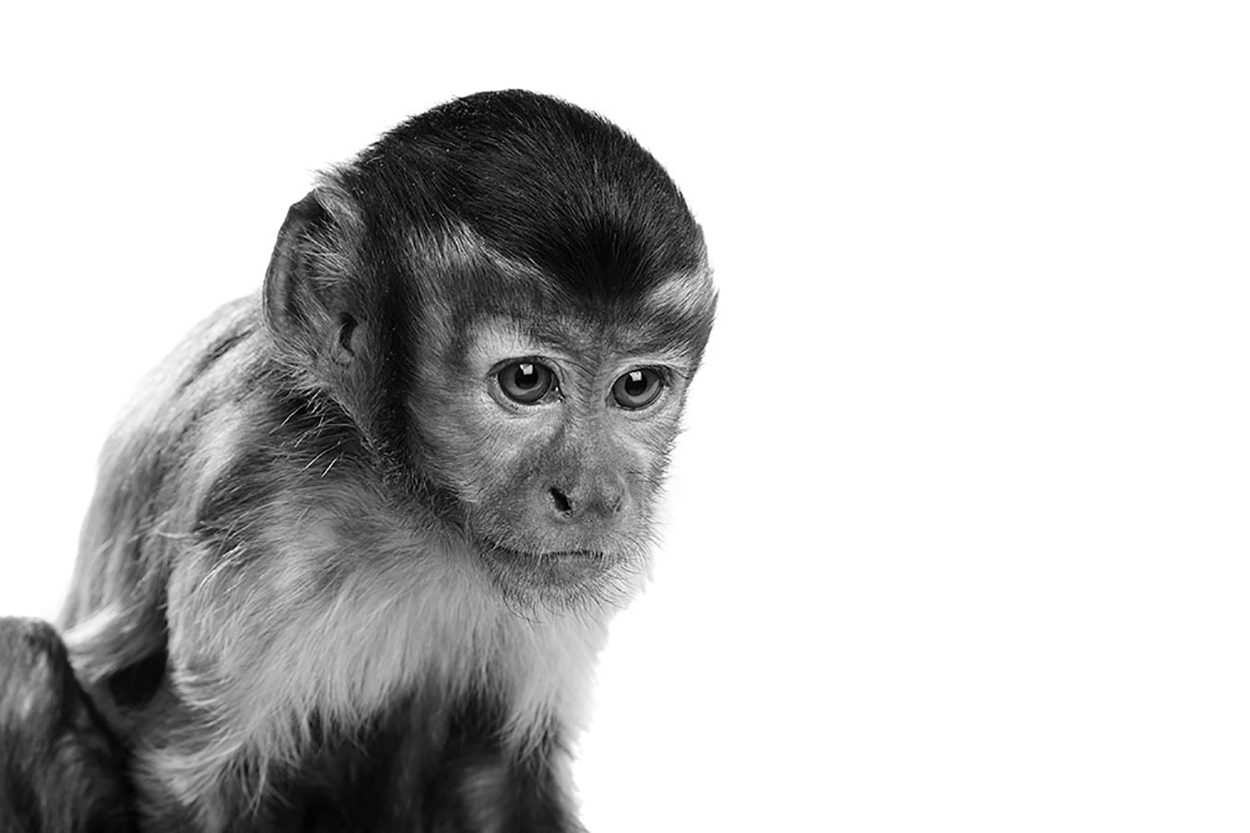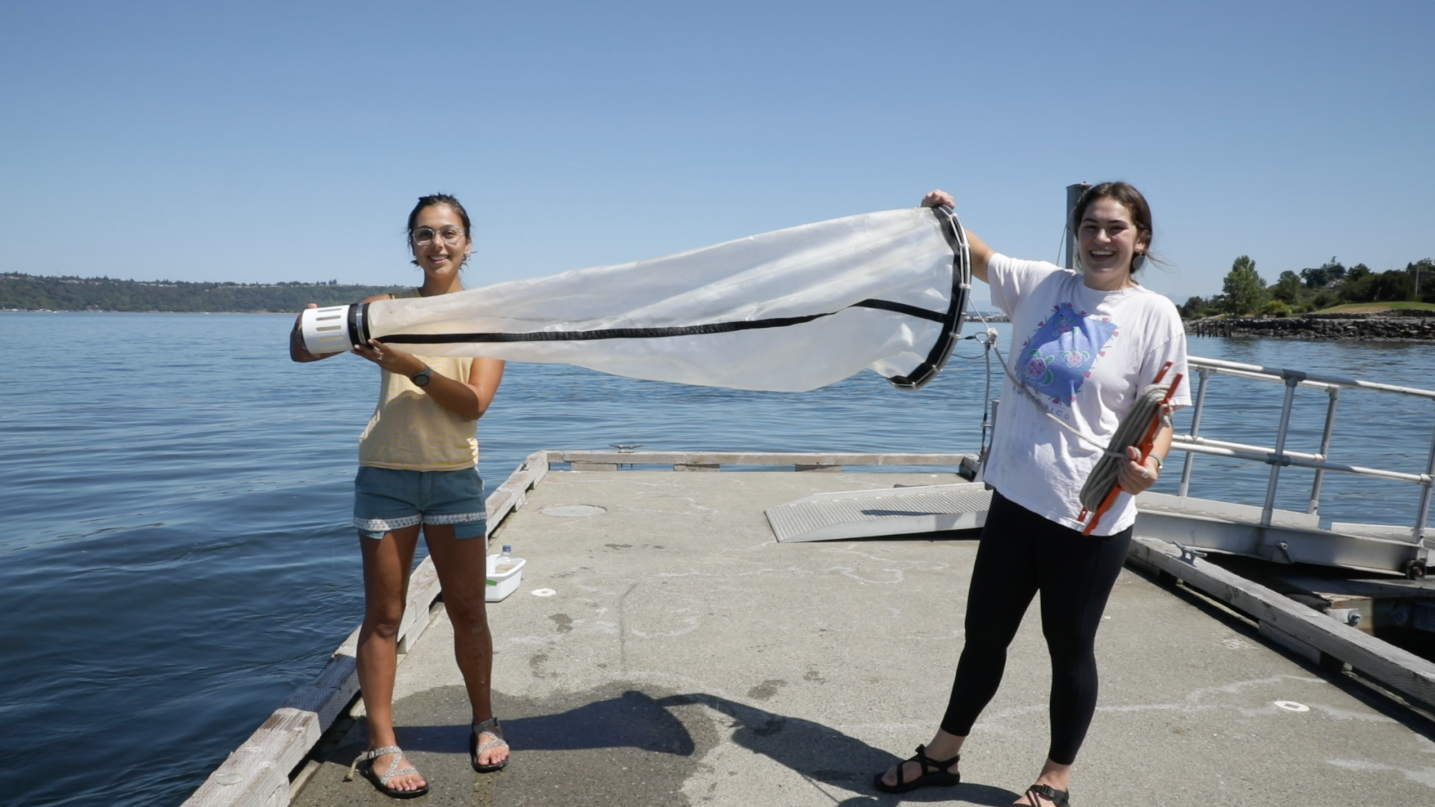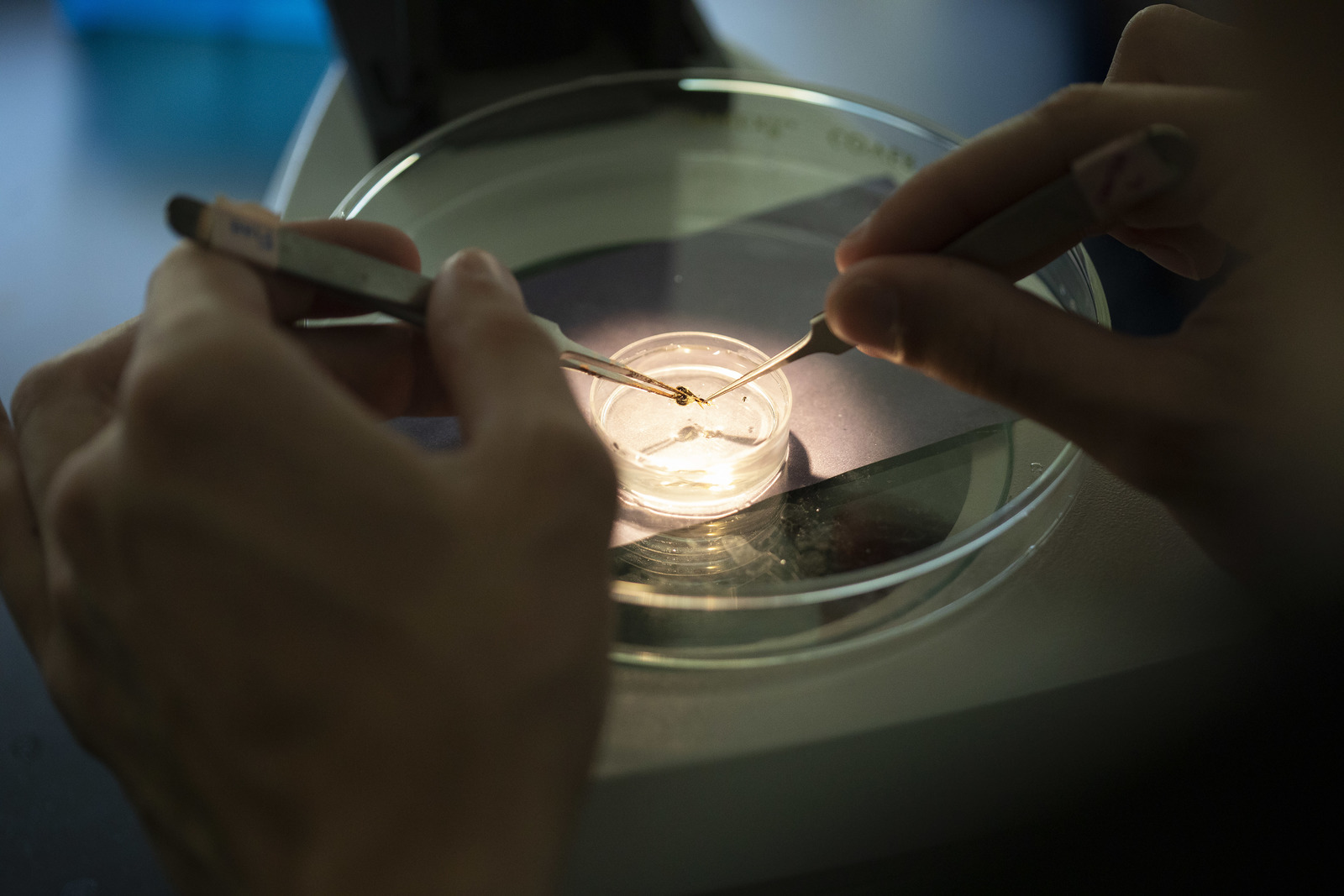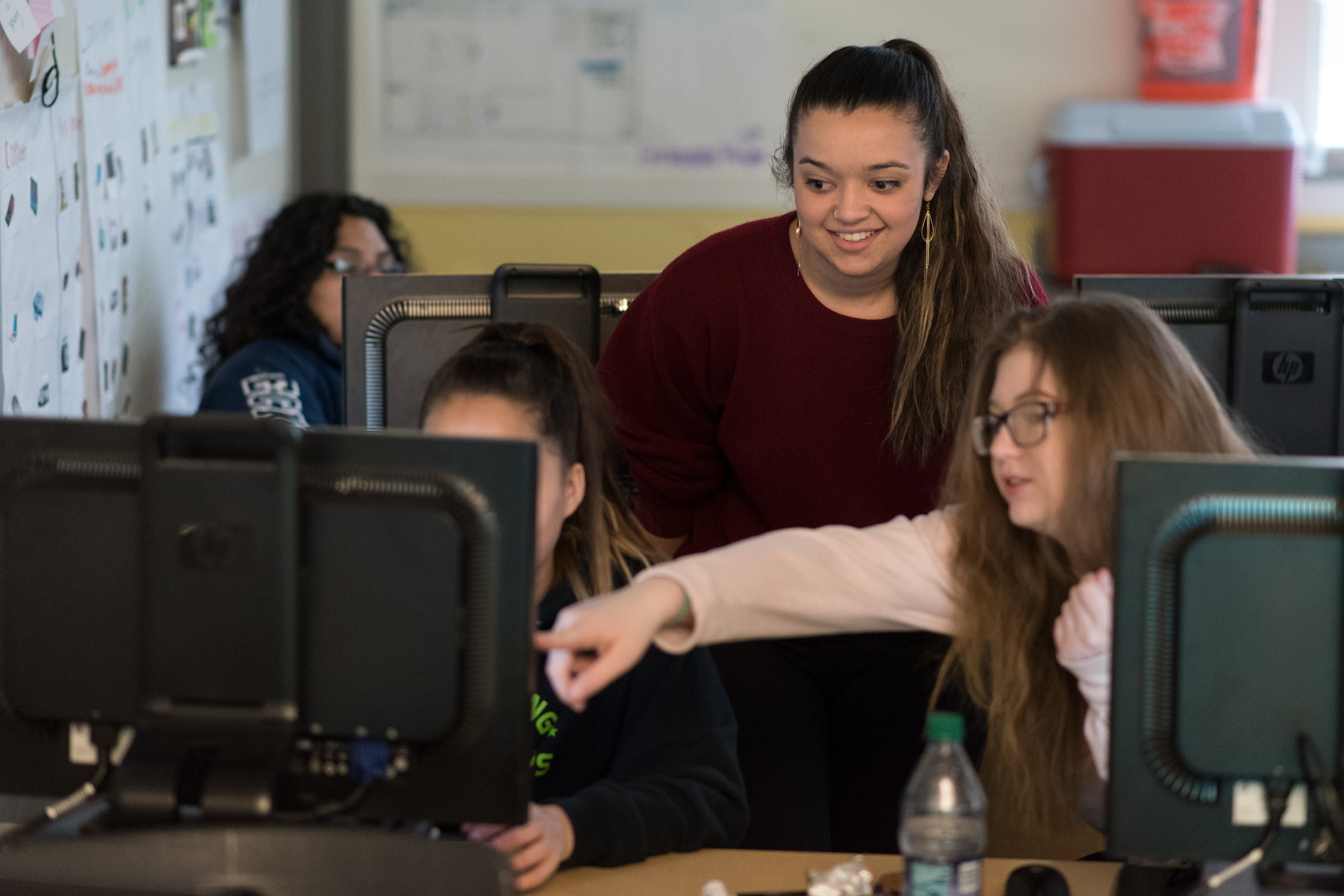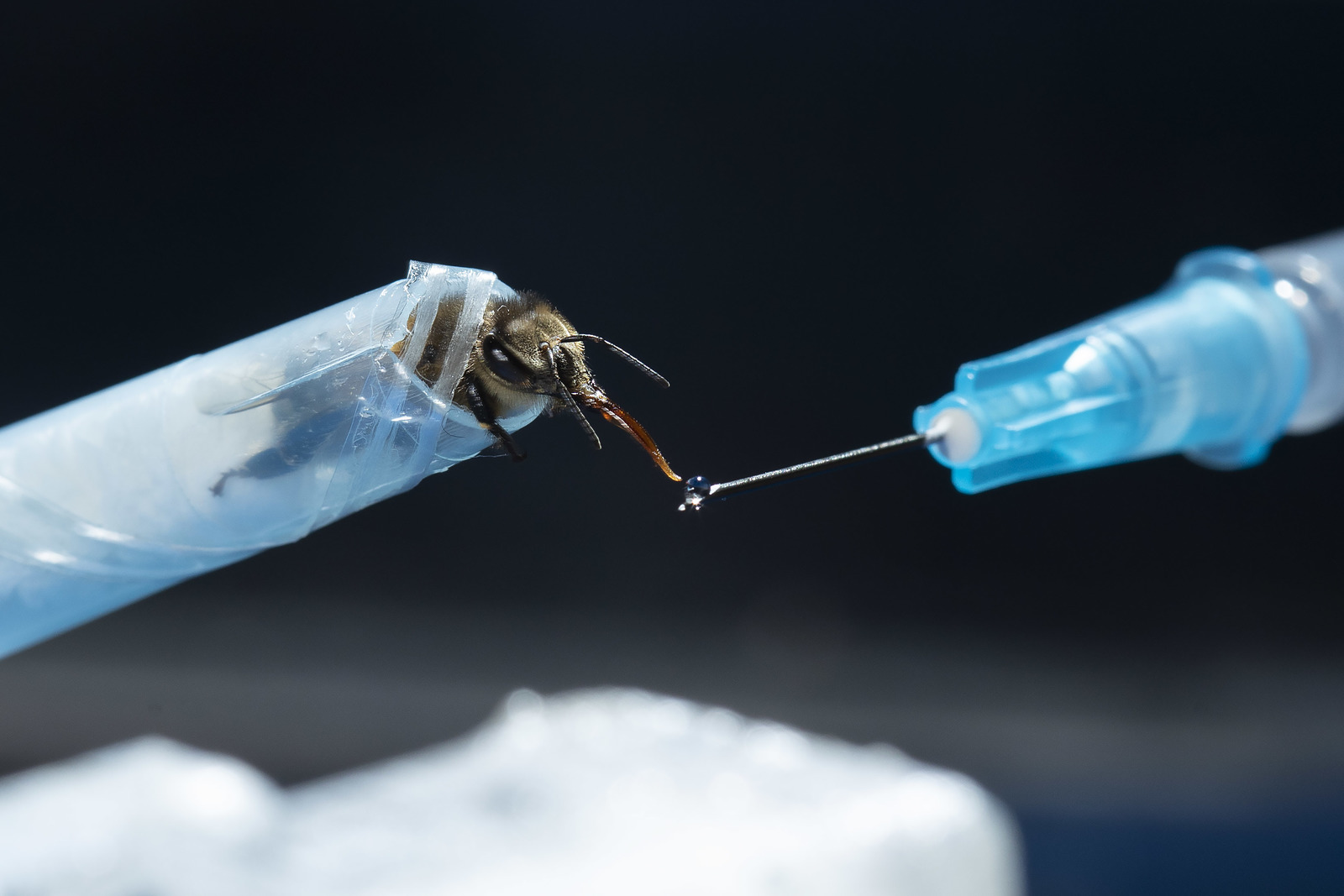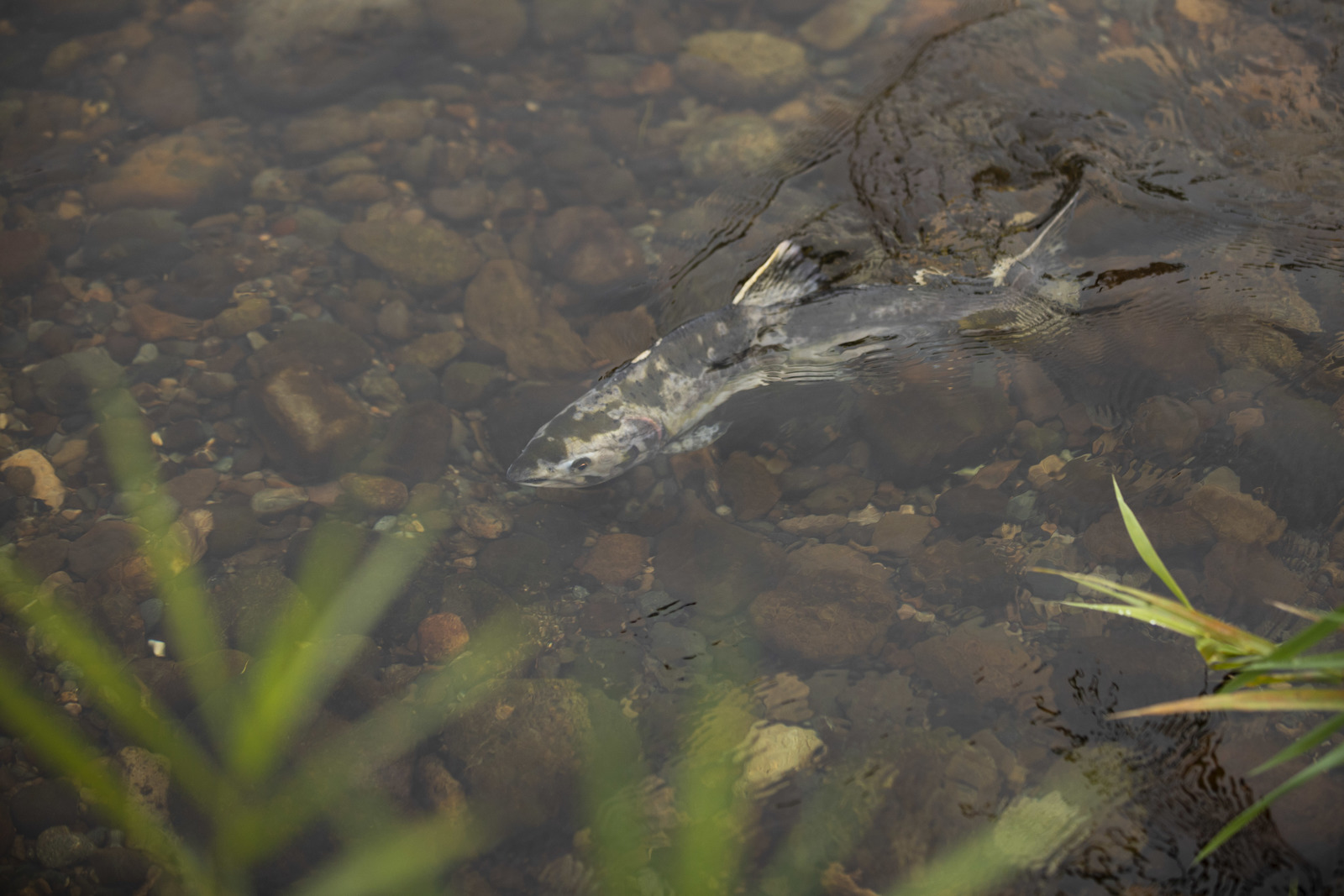Devin Anderson ’22 puts treats to the test to learn if humans are changing the way dogs think
Devin Anderson ’22 spent the summer feeding dogs for science.
Anderson worked with Erin Colbert-White, associate professor of psychology, on a project to understand how humans influence dogs—and the extent to which humans’ behavior can make a dog override its own judgment.
Dogs are the first animals successfully domesticated by humans. DNA suggests that they were domesticated from gray wolves about 40,000 years ago, and they’ve co-evolved with humans since then. “Phenotypically, dogs are a lot different now, in that they don’t need camouflage anymore,” Anderson says. “They’re also a lot more receptive to humans and willing to trust them.”
After doing a pilot study with his family’s dogs, Anderson solicited dog volunteers from the community for a series of experiments. In one trial, he put a treat—usually some cut-up chunks of hot dog—on two different dishes, but put a larger amount on one side than the other. He then bent down toward the smaller amount and said, “Oooooh!” in an excited voice. After that, he moved out of the way and waited to see which treat the dog chose.
“We know dogs can discriminate between quantities,” Anderson says. “That research is well established. We wanted to see if they would prioritize my audiovisual cues over their own judgment.”
The dogs followed Anderson’s cues about half of the time, and ignored them the other half—an unexpected result. “We interpreted this as a variation in priorities,” Anderson says. “Perhaps some dogs value praise more than food, and others food more than praise.”
Anderson used hot dogs for a simple reason: “Dogs typically are really excited by hot dogs,” he says, adding with a laugh: “Once I feed them a couple times before the trial, I usually have their full attention.”
Anderson also did variants of the experiment, including one in which he put equal amounts of hot dogs in each spot, then tried using his voice alone to influence the dog’s choice. Dogs usually followed his voice cues, a result that aligned with previous research.
Anderson, a psychology major and a biology minor, arrived at his summer research project— and, in fact, his field of study—in a roundabout way. He came to Puget Sound as “an aspiring physical therapist,” as he puts it, then took Psychology 101 with Colbert-White. “I totally fell in love with psychology,” he says. His interest in biology comes from his love of animals and from years of watching nature documentaries on TV.
“I talked with Erin, and she said, ‘Why not study what you’re super interested in?’ And that was psychology and biology.”
Colbert-White, a comparative psychologist, has been on the faculty since 2013. Dogs aren’t the only animals she studies: She has worked with bottlenose dolphins, Capuchin monkeys, and Harris’ hawks, and her doctoral dissertation examined an African grey parrot’s use of speech to influence its relationship with its owner.
Anderson, meanwhile, valued the chance to do hands-on research, polish his data analysis skills, and see whether he might want to pursue a career in research. He’s a member of the executive team of Visible Spectrum, a campus club for students of color in STEM majors.
He also enjoyed the lighter moments in his research: “Since we were working outdoors, we did get a lot of looks from crows,” he recalls. “They’d sit on the rooftops, watch us do our testing, and wait for us to leave the hot dogs unattended.” Luckily, the crows never succeeded in stealing any of the treats.



